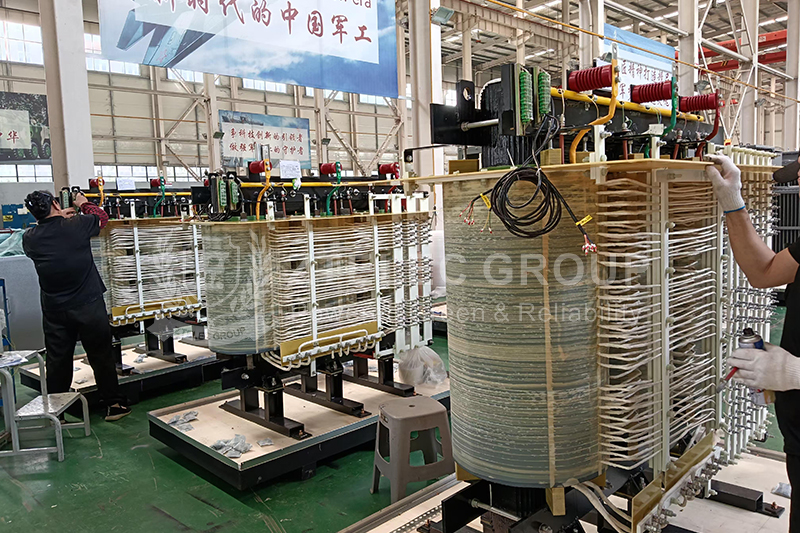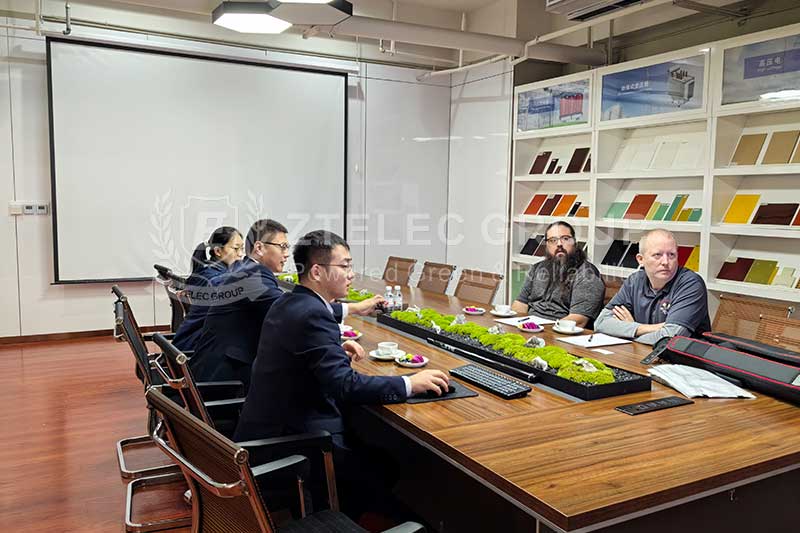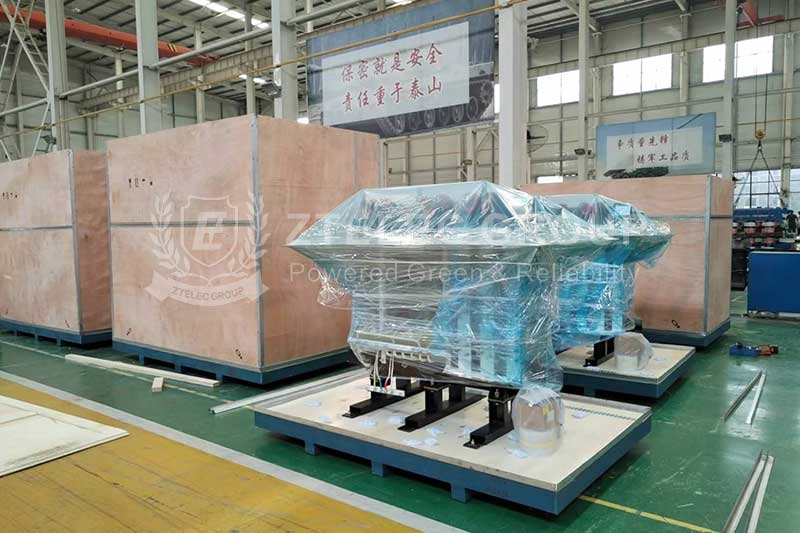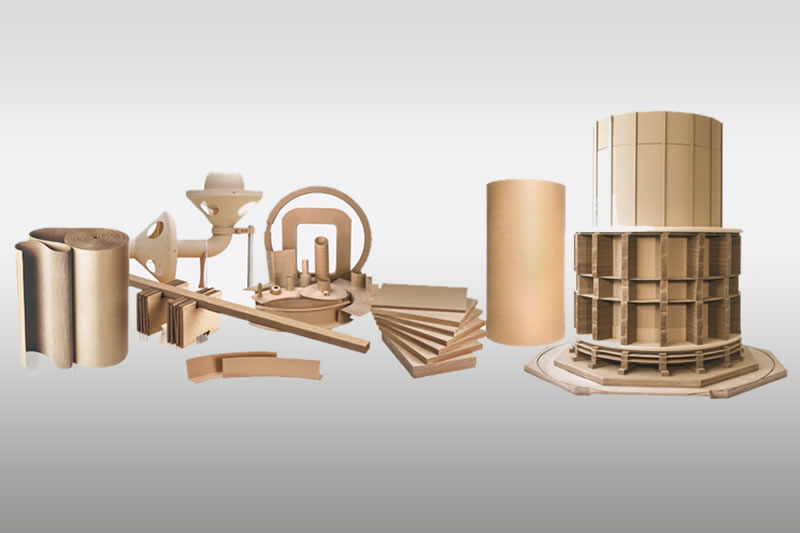What is a dry-type rectifier transformer?
In the field of power equipment, dry-type rectifier transformers are an important type of electrical equipment. So, what is a dry-type rectifier transformer? From the definition, a dry-type rectifier transformer refers to a special transformer whose core and coil are not immersed in insulating liquid (such as insulating oil). Its structure mainly includes an iron core composed of silicon steel sheets and a coil cast by epoxy resin. Epoxy resin has the characteristics of flame retardancy, flame retardancy and self-extinguishing, which gives the dry-type rectifier transformer the advantages of safety, reliability and easy cleaning. As a device dedicated to the rectifier system, the core function of the rectifier transformer is to supply the appropriate AC voltage to the rectifier, prompting the rectifier to convert AC power into DC power, and ensure the stable operation of various types of equipment that require DC power.
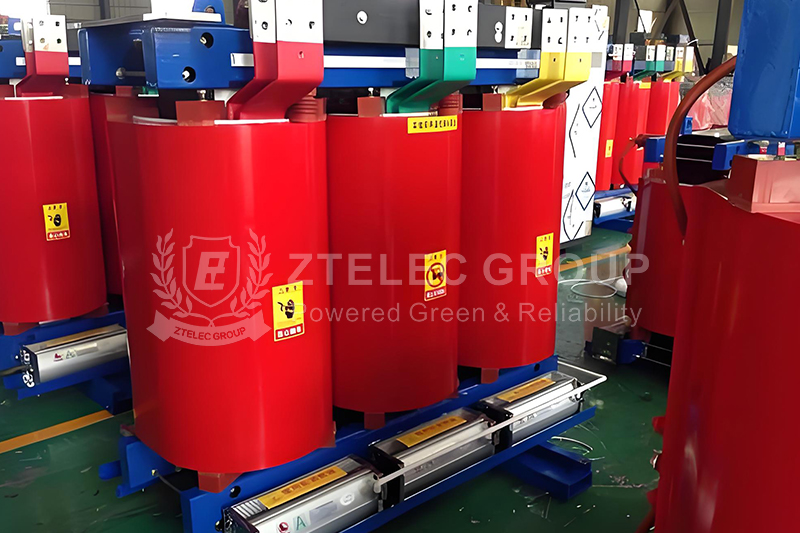
Working principle of dry-type rectifier transformer
The operation of dry-type rectifier transformer is based on the law of electromagnetic induction and the principle of rectification. Its primary side (grid side) is connected to the AC power grid, and the secondary side (valve side) is connected to the rectifier. When AC voltage is applied to the primary side, an alternating magnetic flux is generated in the core, and this magnetic flux induces an electromotive force on the secondary side. Due to the existence of the rectifier, the AC power output on the secondary side can be smoothly converted into DC power.
The specific rectification process is usually achieved with the help of rectifier elements (such as diodes). These elements have unidirectional conductivity and can effectively convert the positive half cycle or negative half cycle (or both) of AC power into DC power. In dry-type rectifier transformers, in order to improve rectification efficiency and reduce harmonic pollution, multi-phase rectifier circuits and phase shifting technology are often used to optimize the quality and stability of power output.
Structural features of dry-type rectifier transformers
Iron core
The iron core of dry-type rectifier transformers is made of high-magnetic silicon steel sheets, which can significantly reduce no-load losses and no-load currents. The iron core generally adopts a step-by-step multi-stage lamination method, which not only helps to reduce the noise generated during operation, but also effectively improves the mechanical strength and ensures the stability of the iron core during long-term operation.
Winding
The winding consists of high-voltage windings and low-voltage windings, which respectively undertake the key functions of stepping up and down and transmitting electric energy. High-strength and high-conductivity materials, such as oxygen-free copper wires, are used to manufacture windings. At the same time, to ensure the reliability and stability of the product during use, advanced winding processes are used.
Cooling system
Dry-type rectifier transformers mainly rely on air convection for cooling, so their cooling system design pays great attention to efficiency. For large-capacity dry-type rectifier transformers, in order to further improve the heat dissipation effect, forced air cooling is usually used to ensure that the transformer can maintain a suitable temperature even when running at high loads, avoiding overheating that affects performance and life.
Insulation system
Since the dry-type rectifier transformer is not immersed in insulating oil, its insulation system needs to adopt special insulation materials and structural design. Through a carefully designed insulation system, it can effectively isolate live parts, prevent safety hazards such as leakage, and ensure that the product can operate safely and reliably in various environments.
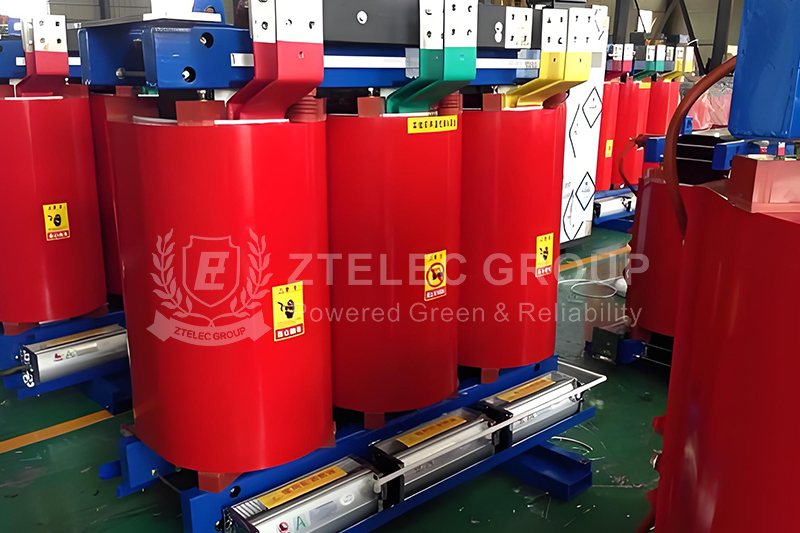
Application fields of dry-type rectifier transformers
Power system
In the traditional power distribution transformer system of the transmission and distribution station, the dry-type rectifier transformer can accurately adjust the voltage and current to ensure the stability and reliability of the power supply. In the field of new energy power generation, such as wind power and solar power generation systems, dry-type rectifier transformers also play an indispensable role, helping the efficient conversion and stable transmission of clean energy.
Industrial field
In industrial industries such as steel, cement, petrochemicals and papermaking, dry-type rectifier transformers provide stable DC power for various equipment and machines, and are key equipment to ensure the continuous operation of the production line. Taking high-voltage inverters as an example, phase-shifting rectifier dry-type transformers, as an important component, can provide them with multi-phase rectifier power to meet the complex power needs in industrial production.
Transportation field
In the railway transportation system, dry-type rectifier transformers provide stable DC power for electric locomotives, signal lights and other equipment to ensure the safety and efficiency of railway transportation. In urban rail transit systems such as subways and light rails, rectifier transformers, as the main equipment of the traction power supply system, support the normal operation and dispatching of trains.
Building and commercial fields
In data centers, server rooms and other places with extremely high requirements for power stability, dry-type rectifier transformers can provide stable DC power to ensure the normal operation of IT equipment and avoid data loss and equipment damage caused by power fluctuations.
- more+releated article
- 2026-01-04Common Power Transformer Faults: Causes, Solut
- 2025-12-312026 New Year Holiday Notice
- 2025-12-31Operation, Maintenance, and Service Life Manag
- 2025-12-30How to Select a 100 kVA–500 kVA Distribution
- 2025-12-29The Impact of NHN NMN Composite Insulation on
- 2025-12-26Practical Application of GPO-3 Insulation Boar
- 2025-12-2510kV Transformer Replacement Timeline: Install
- 2025-12-25Low Smoke EN45545 GPO3 UPGM203 Laminated Board
- 2025-12-24Merry Christmas — ZTelecgroup Christmas Cele
- 2025-12-24How to Select a Suitable 50kVA–500kVA Distri

